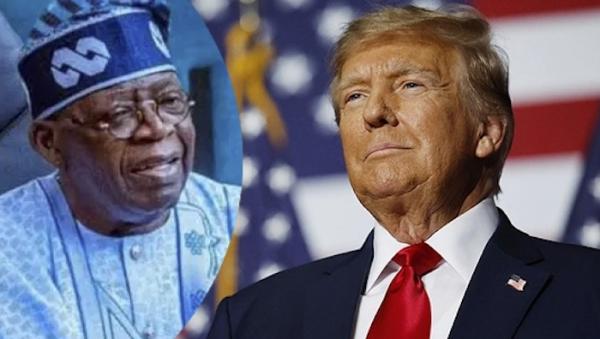
On February 4, when gunmen boarded a Greek-owned tanker anchored near a Nigerian port, killing one crew member and taking three others hostage, everyone was alarmed. According to reports, the ship was attacked while it was waiting to load at Qua Iboe, an oil terminal in south-eastern Nigeria.
Now, the Gulf of Guinea in West Africa is regarded as a new centre of piracy and Nigeria coastal waters has become a critical part of the area.
Indeed, the International Maritime Bureau recorded 33 incidents of piracy and armed robbery in the area between January and September last year, according to the AFP news agency, making it a dreaded area for sailors.
Yes, 70 per cent of Nigeria's economic growth lies on the waterways, but the maritime domain is often fraught with the challenges of maritime illegalities ranging from piracy, sea robbery, smuggling, illegal fishing to crude oil theft and others.
To tackle this, the Nigerian Navy has had to patrol the endless miles of waterways despite some major challenges like shortage of offshore patrol vessels (OPV), budget constraints, inadequate local ship building capacity for construction of naval vessels and inadequate surveillance.
Asides protecting Nigeria's territorial integrity, the NN also contributes its quota at the regional level, by patrolling the waters of the Gulf of Guinea, which is a vast expanse of water stretching almost 6,000km from Senegal to Angola.
But today, some of these challenges are gradually becoming a thing of the past especially when it comes to fleet acquisition, surveillance and ship building capacity.
This is because for the first time since the regime of President Shehu Shagari, the Nigerian Navy (NN) fleet received a major boost with four warships at the same time. Shagari's regime had commissioned three.
This is not to say that since inception in 1956, the NN has not witnessed tremendous development by past administrations aimed at making it a formidable naval force despite daunting operational challenges.
Although these challenges have always been in existence, it is today heightened by global changes, especially with regards to security, which is characterised by diverse threats such as terrorism, transnational organised crimes, trafficking and illicit economic activities enhanced by the interconnectedness of the maritime domain.
Accordingly, strategies to achieve the objectives of repositioning the navy for an enhanced operational capacity and transformation into an efficient naval force in line with 21st century realities, was resolved after deliberations.
But prior to the acquisition and commissioning, a lot of ground work was put in and one certain Thursday, the four warships were commissioned for deployment to patrol the waterways.
The vessels would mainly be used for maritime surveillance, patrol and response tasks, as well as the protection of offshore assets, Exclusive Economic Zone (EEZ) patrol and surveillance, search and rescue and oil spill control.
Before the warships sailed into Nigeria from the United States, China, and Iceland, personnel of the NN were trained at the Naval Training Command (NAVTRAC), Apapa, Lagos to man the ships.
The warships are United States Coast Guard Ships, GALLATINE now renamed NNS Okpabana; NNS Centenary gotten from China; NNS PROSPERITY, formerly an Irish Navy vessel and NNS SAGBAMA, also from China.
The warships are expected to be deployed at sea to tackle the menace of piracy and armed robbery in Nigeria’s maritime domain.
Undoubtedly, as a major maritime nation, it would be stating the obvious to note that there should be adequate measures to provide the much needed capacity to harness our vast maritime potentials towards nation building.
And one of such measures are by emplacing a robust maritime security arrangement to protect our maritime interests, thus there is the need for concerted efforts both by the government and other stakeholders to secure our maritime space.
It is therefore within this context that the NN is expected to maintain a robust and combat-ready fleet capable of sustaining the required presence in our maritime environment and performing the full spectrum of military, policing and diplomatic functions that would ensure adequate protection of our sea lanes of commerce and communication, which are vital to our survival.
New Arrivals
On a recent Tuesday, the vessel from United States arrived in Nigeria and it was received by the Chief of Naval Staff (CNS), Vice Admiral Usman Jibrin, who said the addition to the fleet would boost the navy's war against maritime crimes within the maritime domain like illegal fishing, arms proliferation, crude oil theft, smuggling and piracy.
He said: "It is worthy of note to state that the successes recorded by NNS THUNDER in curtailing threats in our maritime domain and the larger Gulf of Guinea region, with the confidence reposed in our country by the US made it possible to acquire NNS OKPABANA.
"The addition of this ship into the NN fleet will certainly bolster our zeal to end the menace in our maritime domain and the region, as well as support the regional and global effort to eliminate transnational maritime threats.
"This nation has always requested the navy to do more and with this, the government recognizes that there must be needed platform for the navy to do its job well.
"The present government headed by President Goodluck Jonathan, took the recapitalisation of fleets as a huge challenge and has invested huge funds through the acquisition of two Off-Shore Patrol Vessels (OPV) from China and this one from USA.
"It is hoped that by the time we take delivery of all, the NN will be better for it. We will deploy the vessel based on threat perceptions.
"For us to be able to do effective maintenance, it is better to co-locate the two ships (OKPABANA and THUNDER) in the same command.
"However, deployment should be based on threat perception. If they are closely related and are operating about the same area, our maintenance team can be co-located where they are and sourcing for spares will be easier.
"We have opened a maintenance channel with the American government such that we can always source for spares.
"Apart from that, our maintenance that has been working onboard THUNDER will be maintained for OKPABANA and will we continue to maintain the channel of spare sourcing to avoid what happened to ARADU."
Also, US Ambassador, James Entwinstle said US' support has significantly increased Nigeria's ability to reach the shared goal since both countries are interested in a peaceful, well policed Gulf of Guinea.
Entwinstle, who was represented by the US Consul General, Jeffery Hawkins, said most of Nigeria's security problems come from the sea.
He said, "Many of the regions' security challenges come from the sea, and this powerful new naval platform, will enhance Nigeria's ability to control the maritime environment.
"OKPABANA is the first Nigerian vessel to have a Regional Maritime Awareness Capability (R-Mack) system on board. This system will link back to the NN wider R-Mack network and expand NN's ability to track and identify vessels throughout the Gulf of Guinea."
Whilst the navy was still bathing in the euphoria of NNS Okpabana's arrival, the second acquisition from China arrived named NNS Centenary F91, a stealth Offshore Patrol Vessel (OPV).
The vessel which was constructed by China Shipbuilding and Offshore International Limited Shipyard, was also received by the CNS.
The vessel set sail from the China in December and was brought back to Nigerian waters by the Commanding Officer, Captain Donald Okeiyi alongside his crew.
Vice Admiral Jibrin, who also received the vessel had said the addition to the fleet would boost the navy's war against maritime crimes within the maritime domain like illegal fishing, arms proliferation, crude oil theft, smuggling and piracy.
He said, "The addition of the offshore patrol vessel to the NN fleet would definitely enhance the navy's capacity to execute her constitutional roles and open a new vista in Nigeria-China relations.
"Effective security is a pre-requisite for the economic Wellbeing of Nigeria in view of the country's heavy dependence on the sea.
"I am glad to acknowledge that President Goodluck Jonathan recognises this imperative and has given unprecedented support to the fleet recapitalisation pillar of the NN transformation plan for the period 2010-2020.
"The arrival of NNS Centenary in Nigeria bears testimony to the commitment and resolve of the president to emplace a strong and virile navy capable of protecting Nigeria's maritime interests against all forms of threats."
He also disclosed that the newly arrived vessel is merely one of the two OPV acquired from China for the navy, adding that the second one would arrive Nigeria later in the year.
Jibrin said a substantial part of the finishing and fittings for the second vessel would be done in Nigeria, in order to enhance Nigeria's indigenous shipbuilding capacity and create jobs for the unemployed youths.
Barely two weeks later, two other vessels were added to the fleet and they were all commissioned at the same time by Peesident Goodluck Jonathan.
A Landmark Achievement
For the navy and the nation at large, it was an epoch event when President Goodluck Jonathan for the first time ever in Nigeria commissioned four naval warships at the same time.
At the commissioning were the Chief of Defence Staff, Air Chief Alex Badeh; the Chief of the Naval Staff (CNS), Vice Admiral Usman Jibrin; the Chief of the Army Staff, Lieutenant General Kenneth Minimah; the Chief of Air Staff, Air Marshal Adesola Amosun and the Inspector General of Police, Suleiman Abba.
Others were the Chairman House Committee on Navy, Senator Chris Anyanwu; the Minister of Defence, Gusau Mohammed and National Chairman, People's Democratic Party, Adamu Muazu, amongst other senior and retired military personnel as well as diplomatic corps.
After the commissioning and unveiling of the ships names, Jonathan while commending the efforts of the service chiefs urged them to continue to protect Nigerians.
He said they will leave no stone unturned to improve the capacity of the Nigerian Armed Forces, adding that they have improved the technical capacity of the army as they work in harmony with the service chiefs to ensure that the country does not disintegrate.
He said: "The commissioning gives me the opportunity to once again reaffirm my confidence in the competence and commitment of the officers, ratings and civilian staff of the NN in the fight against insurgency and instability in parts of the country are equally highly appreciated."
Expressing his delight at commissioning the four ships, the first time since Shehu Shagari's regime, he said although the level of crude oil theft has reduced but gas pipeline meant for power generation is being vandalised.
On the efforts of the administration to recapitalise the fleet of the NN he said, "As the lead maritime security agency, the NN deserves all the support it needs to effectively carry out its statutory roles.
"Thus, in spite of other pressing demands, my administration has continued to support the fleet recapitalisation pillar of the NN Transformation Plan 2011-2020, which was formulated to support the realisation of the goals of the Federal Government's transformation agenda.
"The four ships being commissioned today are part of a total of eight ships that are expected to be commissioned into the NN fleet in 2015.
"I wish to reassure the navy that my administration will not waiver in its support to the capacity building effort of the NN. On your part, the Goverment and people of Nigeria expect you to ensure judicious and productive use of these assets to deliver the much desired maritime security."
Also in his speech, the CNS, Vice Admiral Jibrin said the NN being the principal agency charged with maritime security has been faced with the challenge of inadequate and ageing platforms in its quest to effectively meet the maritime security needs of the nation.
He said, "Nigeria as a littoral nation depends largely on the sea for her revenue earnings. Buoyed by the transformation agenda and vision of the president, the navy formulated its own transformation plan for the period 2011-2020 with fleet recapitalisation as a key pillar.
"The platforms will contribute substantially to the capacity of the NN to effectively patrol our waters and support the nation's foreign policy objectives through flag showing visits to friendly foreign countries."
The Warships
NNS OKPABANA, was acquired under the US Excess Defence Article programme, which enables friends and partners of the US to procure their surplus military hardware.
Formerly known as USCGC Gallatin (WHEC-721), it was commissioned into the service of the US Coast Guard on December 20, 1968, as a Hamilton class high endurance patrol vessel.
The vessel has a cruising range of 9600 nautical miles (17,800km) at 20 knots (40km/h) and 80-foot (24m) flight deck, making her an ideal platform for extended patrols. It is equipped with combined diesel and gas turbine propulsion plant.
Following its acquisition, it underwent another series of equipment replacement to renew some of the ageing facilities onboard, after which it was enrolled in the NN as a frigate with capabilities for long endurance patrol of the EEZ.
THISDAY gathered that although the vessel was given to the navy at no extra cost, the navy however had to spend about 8.5million dollars, being the cost of refurbishment and transfer.
The vessel set sail from the US after the refurbishment and was brought back to Nigerian waters by the Commanding Officer, Captain MA Ibrahim alongside his 146-man crew.
For NNS PROSPERITY, formerly an Irish Navy vessel, it was acquired purposely for the training of young sailors, in line with the CNS leadership’s prioritization of training as a strategy for enhancing overall operational efficiency of the force.
The NNS CENTENARY on the other hand is one of the two offshore patrol vessels acquired from China at the
the China Shipbuilding and Offshore International Company.
The company had recently launched the Nigerian Navy’s first of two P-18N offshore patrol vessels and it was assigned the pennant number F91 (the pennant number F90 is assigned to the NNS Thunder, a ex-US Coast Guard cutter).
It is pertinent to note that at its launching ceremony, it also marked the hull formation ceremony of the second vessel, F92. More importantly, while NNS CENTENARY was built entirely in China, the major part of the second one would be constructed in Nigeria as parts of effort to enhance local shipbuilding capability and provide technology transfer.
Also, the contract also entails that the company upgrade the Nigerian Naval Shipyard in Port Harcourt so that it can build OPVs and maintain vessels up to 10 000 dwt. Upgrades to the dockyard include a new jetty, a new dry dock and other additions.
The vessel is 95 metres long, with a draft of 3.5 metres and is powered by two MTU 20V 4000M diesel engines, giving a speed of 21 knots, and is armed with one 76 mm and two 30 mm guns.
The crew complement can take as much as 70 sailors. It also has an endurance rate of 20 days at sea and it can also carry and support a helicopter off a rear deck.
Also from the Chinese was NNS SAGBAMA, a patrol boat, which was donated to Nigeria by the Chinese government in appreciation of the twin acquisition.
Navy's Transformation Plan on Fleet Recapitalisation
Given the huge boost given to the navy's fleet, it is pertinent to note that the measure although always in the pipeline was exacerbated with the NN Transformation Plan (NNTP) 2011-2020 in line with FG's Transformation Agenda.
The very essence of the NNTP 2011-2020 was to reposition the navy to achieve and sustain enhanced efficiency and effective capacity in discharging her statutory roles.
This clearly supports the vision of the CNS which is “To emplace a well trained, equipped, maintained, organised and highly motivated naval force capable of being deployed singly or with other arms of service in the defence of Nigeria’s maritime environment, other troubled spots and the Gulf of Guinea for sustained economic prosperity”.
For the workability of the plan, it was divided into
into eight transformation pillars and was structured into short, medium and long-term time frames for completion of individual development activities, one of which is fleet renewal and recapitalisation.
Based on lessons learnt from the NNTP 2011-2020, the navy had to review it two years later in August 2014 and named it; the Revised Nigerian Navy Transformation Plan (R-NNTP 2011-2020).
Thus, with these in mind, the navy has in times past acquired some Shaldaq, Ocea and Manta class boats. And for the navy, its not 'In with the new and out with old'.
Under the present administration, a comprehensive evaluation of some of the older ships is ongoing with a possible refit in the nearest future. Chief among this set being refitted is the nation's flagship-NNS ARADU.
Like they always say, 'to whom much is given, much is expected' and for the navy, the expectation is that with the new warships and other acquisitions, they would add greater value not just by protecting the littoral space, but also ensuring that maritime illegalities are reduced to the barest minimum.



















